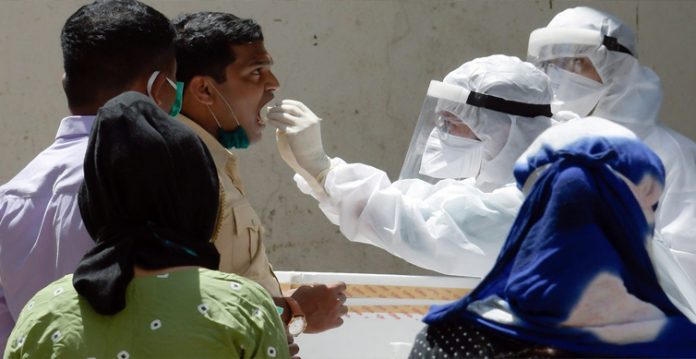With India inclining towards antigen testing more than the standard molecular tests, experts fear that many individuals who are actually COVID-19 positive might go free due to the negative result on their antigen test, increasing the infection by many folds in the country.
Antigen tests are the cheaper, faster but far less accurate alternative to the molecule-based one. India started using the former in June as labs weren’t able to pace up with the rising sample testing. As opposed to the 5,6 million cases in the country in the mid half of June, it now has over 3.1 million cases, this is after the employment of antigen tests. Yet, there is a large possibility that many infections might be missed as the tests aren’t supremely reliable. However, it is still being considered by the US for battling with their own numbers as laboratory personnel is finding it extremely difficult to conduct the samples.
These tests do not require any special equipment or expert professionals to conduct it, which are comparatively much cheaper and quicker. Moreover, people who are passed in the test need to be followed up with regular retesting, which isn’t happening in most parts of India.
As the tests vary greatly in their results and the functioning, it is important for them to assessed separately- again, which isn’t being done.
With the US trying to find other ways to tackle the problem of testing, Harvard researchers are supporting the development of a saliva-based antigen test that can be available for as low as $1. This could allow individuals to test themselves at home every day, probably like any other regular level testing method like a sphygmomanometer. However, the Food and Drug Administration hasn’t given a green light for the same.
Harvard’s Dr. Michael Mina says that the antigen tests do not test a person to be positive for COVID-19 while it is in the initial levels. Yet, such people are allowed to go free. These can become potential carriers, spreading the infection, once their levels surge. It is then that the antigen tests will be able to identify and label him as a COVID-19 positive patient. Also, if a person’s symptoms change or get worse, he is entitled to get tested again even if he has tested negative by an antigen test.
Delhi was the first to begin the antigen tests on a large scale. In a span of 40 days, the re-testing was recorded at only 0.5% of the total testing done, which is 1,365 people out of the 2,60,000 people tested in that period. This leaves many people, who could have been positive yet weren’t due to the unreliable antigen tests. But still, the government is continuing the tests.
A public health specialist of Maharashtra said that the molecular tests that used genetic coding to detect the virus had gone from 11,000 daily to 5,400. This is more than half of the previous trend, which is very alarming.
According to Dr. AshishJha, the director of Harvard’s Global Health Institute, the cumulative of both the tests cannot ascertain that the number of cases is reducing as the antigen test rules out many positive individuals.
Bihar and Uttar Pradesh, the two states with not the greatest healthcare systems, have a combined population of over 300 million. These states test over 1,00,000 people each day. Yet, the molecular tests account only for 6,100 in Bihar and 30,000 in UP.
Mr.Jha said that this test is useful only in places and for individuals who do not have access to the standard tests, but it doesn’t correspond that the government needs to lower the number of molecular tests as those are more accurate. Antigen testing in India might be beneficial but aren’t a reliable and perfect substitute for the latter ones.


